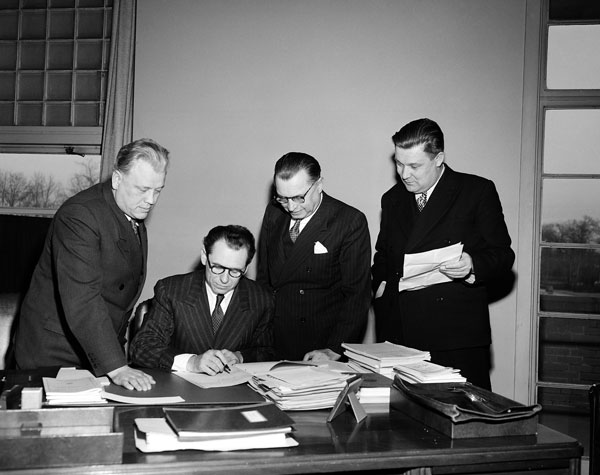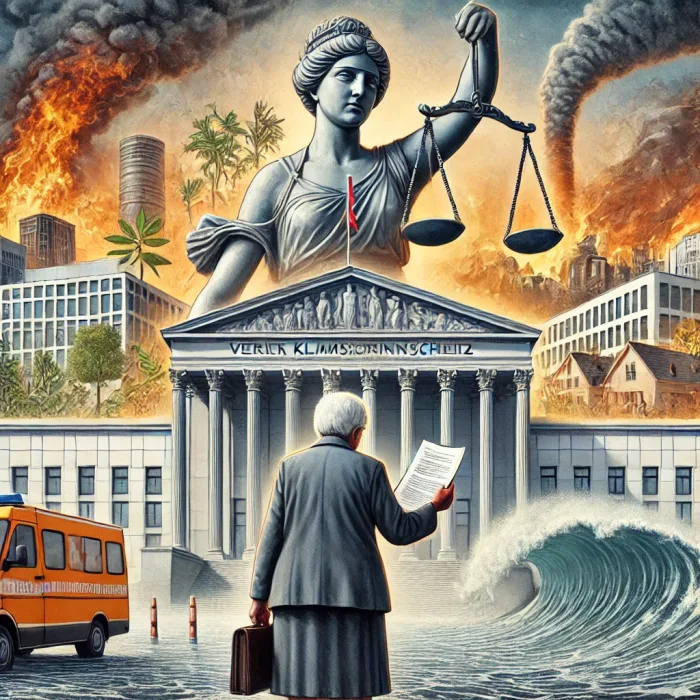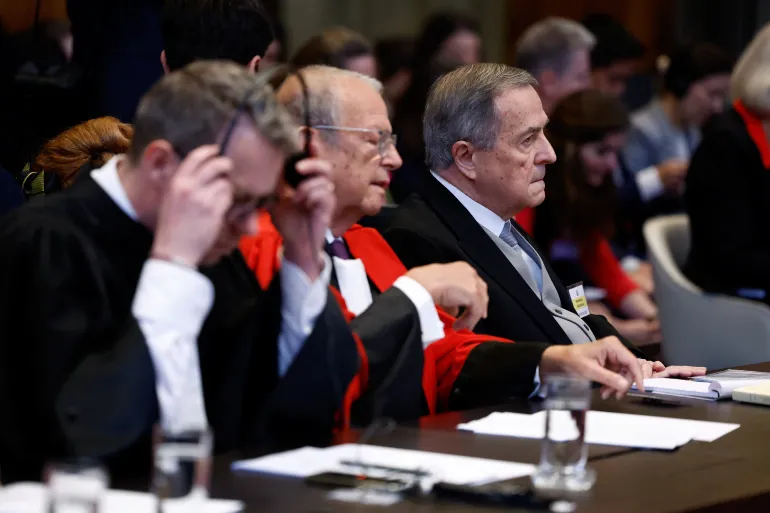The Definition
The crime of genocide falls within the jurisdiction of the International Criminal Court under Article 5 of the Rome Statute and strikes at the very heart of human existence and dignity. It represents a “systematic and planned attempt” to destroy the identity and future of an entire people. As defined by the 1948 Convention on the Prevention and Punishment of the Crime of Genocide, the crime of genocide involves acts committed with the intent to destroy, in whole or in part, a national, ethnical, racial, or religious group. Such acts include:
- Killing members of the group;
- Causing serious bodily or mental harm to members of the group;
- Deliberately inflicting on the group conditions of life calculated to bring about its physical destruction in whole or in part;
- Imposing measures intended to prevent births within the group;
- Forcibly transferring children of the group to another group.
Ad-Hoc Criminal Tribunals
International law recognizes the need for specialized mechanisms to address crimes of such magnitude as genocide. Ad-hoc criminal tribunals are temporary courts established specifically to investigate and prosecute crimes committed during specific conflicts or within a defined time period. These limitations ensure that they do not violate the sovereignty of individual states and only intervene when necessary.
Following the World War II, the Nuremberg and Tokyo tribunals served as historical models for holding war criminals responsible. However, it was not until the atrocities committed during the Rwandan genocide and the Yugoslav Wars in the 1990s that the international community felt compelled to act again. In response to these horrific acts of genocide, the United Nations Security Council established ad-hoc criminal tribunals: the International Criminal Tribunal for the Former Yugoslavia (ICTY) and the International Criminal Tribunal for Rwanda (ICTR).
The Establishment of the ICTY
The dissolution of Yugoslavia in the early 1990s tragically descended into violent ethnic conflicts marked by widespread atrocities. The Yugoslav War is often referred to as the deadliest conflict in Europe since the World War II. Accordingly, from 1991-1999, about 140,000 people lost their lives and about 4 million others were displaced. In response to reports of serious crimes committed within the territory of the former Yugoslavia since 1991, including grave breaches of the Geneva Conventions, violations of international humanitarian law such as willful killing, ethnic cleansing, mass killings, torture, rape, pillage and destruction of civilian property, the destruction of cultural and religious property and arbitrary arrests, crimes against humanity, and the crime of genocide; the United Nations Security Council established the ICTY via Resolution 827 on May 25, 1993. The ICTY’s mandate focused on prosecuting high-level individuals responsible for these crimes. It aimed to hold leaders accountable and contribute to ending the ongoing violence.
ICTY Case Law
The ICTY conducted numerous trials, some of which constituted precedential case law such as Milosevic, Mladic, and Karadzic.
Slobodan Milosevic was the former president of Serbia and later Yugoslavia. He was accused of genocide, crimes against humanity, war crimes, and systematic sexual assaults against women in connection with the wars in Bosnia and Herzegovina, Croatia, and Kosovo. His trial ended without a verdict upon his death in 2006.
Ratko Mladic was the former commander of the Bosnian Serb army. He was known as the “Butcher of Bosnia” and he was found guilty of genocide, war crimes, terror, deportation, and crimes against humanity. Most notably, he is accused of creating a campaign of sniping and shelling civilians in Sarajevo, designed to terrorize residents, and of commanding the Srebrenica massacre, a mass killing of more than 8,000 Bosnian men and boys in 1995 by the Army of Republika Srpska. He was sentenced to life imprisonment.
Radovan Karadzic was the former president of Republika Srpska, the Bosnian Serb entity. He was found guilty of genocide, war crimes, and crimes against humanity for his commanding roles in the Siege of Sarajevo and the Srebrenica massacre. He was sentenced to life imprisonment.
Additionally, in the Tadic case, the ICTY confirmed that customary international law had imposed criminal responsibility for serious violations of humanitarian law governing internal as well as international armed conflicts.
The ICTY and the Crime of Genocide
The ICTY played a crucial role in bringing perpetrators of genocide to justice and establishing a historical record of atrocities committed in the former Yugoslavia. Its work had several significant implications for international law and the pursuit of justice. As for accountability for genocide, the ICTY’s judgments emphasized the individual criminal responsibility of leaders and political figures for orchestrating mass atrocities. The trials of figures like Slobodan Milosevic, Ratko Mladic, and Radovan Karadzic sent a powerful message that even those in positions of power are not above the law and not immune from prosecution. This was a significant departure from the past focus on state responsibility. The ICTY also made a substantial contribution to the development of international criminal law, particularly regarding genocide, crimes against humanity, and war crimes. It set many precedents; it was the first to charge rape as a form of torture, hear a trial for sexual violence against men, try sexual enslavement as a crime against humanity, and include rape as a major trial focus. Its legal reasoning provided legal tools for future trials and its jurisprudence made substantial contributions to the legal definition and understanding of genocide. Key rulings clarified issues such as the intent required for the crime, and how acts beyond killing can constitute genocide. Jurisprudence from the ICTY expanded the body of international humanitarian and criminal law in areas such as joint enterprise and accomplice liability, commander and subordinate responsibility, and sovereign immunity.
While the establishment of the ICTY should be considered an important and effective step in holding individuals accountable for atrocities; its impact on international efforts to deter future violations of international humanitarian law must be questioned. The legacy of the ICTY is relevant when considering contentions surrounding the conflict in Gaza, where accusations of war crimes, crimes against humanity, and genocide, such as in the South African claim based on the Genocide Convention, are being revived today. Although the ICTY model cannot be directly applied to the situation in Gaza due to the unique structure of each conflict, it is important in terms of reminding the importance of international mechanisms in ensuring the accountability of perpetrators of serious crimes such as genocide and in the fight against impunity.





